We’re sure you’ve all heard the one about billionaires far and wide buying up property in New Zealand in anticipation of the apocalypse? Ironic, don’t you think, that one of the last places to be inhabited by humans (none before 1300AD, apparently) will also be the last place standing when the doomsday clock finally strikes midnight?
Which, it has to be said, is looking closer than ever…
Anyway, we digress. We’re here for those inaugural visitors to the Land of the Long White Cloud (and Flat White Coffee), who are heading there for fun and frolics, curiosity and culture, rather than for self preservation. You’re our guys! And with that, here are 7 tips for first time visitors to New Zealand.
Go South For Scenery
Too many first time visitors to New Zealand make the huge mistake of focusing all of their attentions on the cosmopolitan cities of the North Island, where Auckland, Wellington and Hamilton lie. And while these places have much to offer, it’s the South Island which boasts the truly knock out, spectacular scenery for which the country is famed.
Don’t (and you won’t) miss the Southern Alps, the mountain range which runs for the length of the island and is peaked by Mount Cook (Aoraki in Maori). Scaling New Zealand’s tallest mountain will take at least three days on foot, but the more all encompassing Mount Cook National Park provides endless fantastic views and a sense of serenity you won’t find in the Northern hemisphere.
Other must sees on the Southern Island include Stewart Island, which actual, flying, pecking Kiwis call home. The Hokitika Gorge is perhaps the place which provides the most Instagram worthy shot; calm, turquoise waters surrounded by native bush; just bliss. When it’s this beautiful, you might even want to put your camera away.
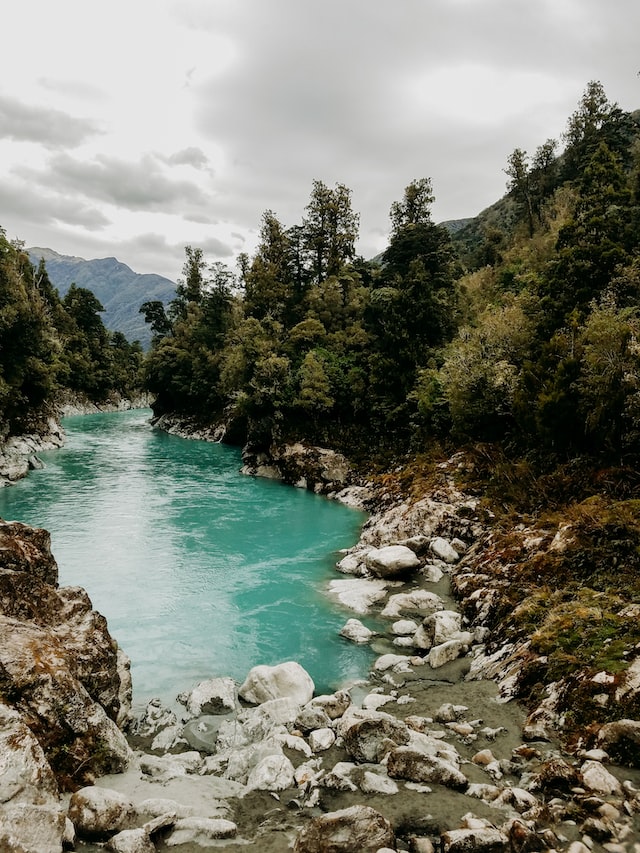
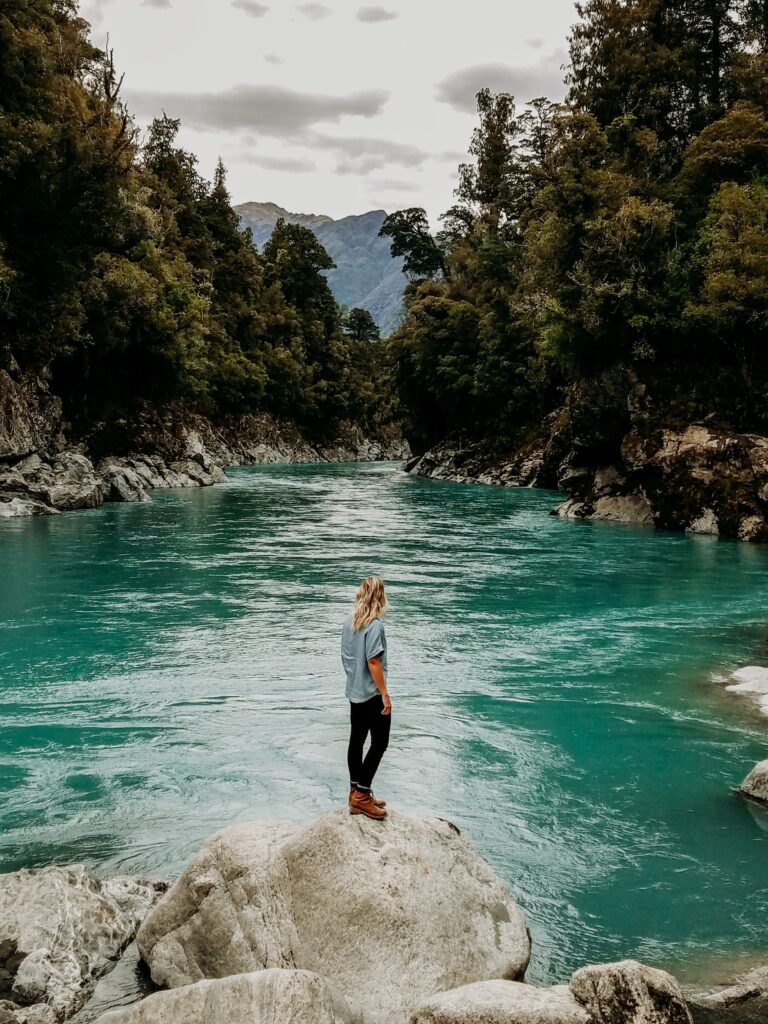
Budget Be Damned
We won’t cloak this in allusion or implication; New Zealand is expensive. Really expensive. There’s scant opportunity for budget backpack travel, make no mistake.
Even if you don’t stay in 5-star hotels or luxury resorts, you’re still going to be paying a premium for accommodation, sure, but most damaging to any attempt to be conservative with the coin is likely going to be eating and drinking out, which is as costly as anywhere we’ve encountered worldwide.
Activities and tours are also some of the most prohibitively expensive around, probably how and why their scenic destinations remain so well kempt and unspoilt. From getting a helicopter ride to hike Franz Josef which is one of New Zealand’s iconic glaciers, to cruising with whales in Kaikoura, experiences here don’t come cheap. If you’re to enjoy this amazing country to its full potential, then save, save, save before visiting.
Factor in transportation costs too – while Auckland car rental rates might seem steep compared to other countries, having your own wheels is often essential for reaching those remote, picture-perfect locations that make the journey worthwhile.
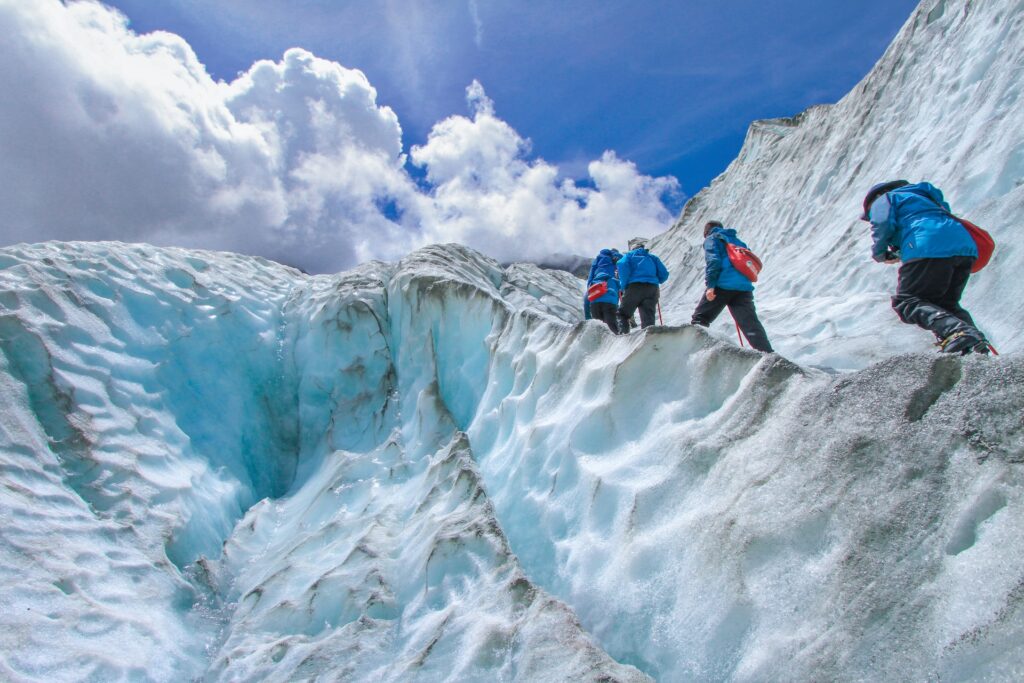
New Zealand, New Visa Requirements
Recent changes to New Zealand border control mean that UK travellers will now need to obtain an NZeTA (New Zealand Electronic Travel Authority) before they travel here. Previously a ‘visa waiver’ country, UK travellers could visit the country with ease. As of October 1st 2019, these rules have changed, partly to include an eco-levy aimed at supporting conservation efforts in the country. And who can argue with that?
An NZeTA is simple to apply for online and it takes just a few minutes, though travellers should allow up to 72 hours for processing. The NZeTA costs just $17 (around £8) via the free application app, or $23 (around £11) if completed online. You will also need to pay an International Visitor Conservation and Tourism Levy (IVL) of NZD $35 when you apply.
For UK citizens, the tourist visa rules are particularly kind; you can stay in New Zealand for six months, though you will need to satisfy the Immigration Officer at the airport that you meet the criteria for visa-free entry, which includes having an onward ticket and sufficient funds to support you during your stay.
You may also need to show proof of travel insurance on arrival. One way travel insurance in NZ is popular for those looking to stick around for a while and travel the country without pressure.
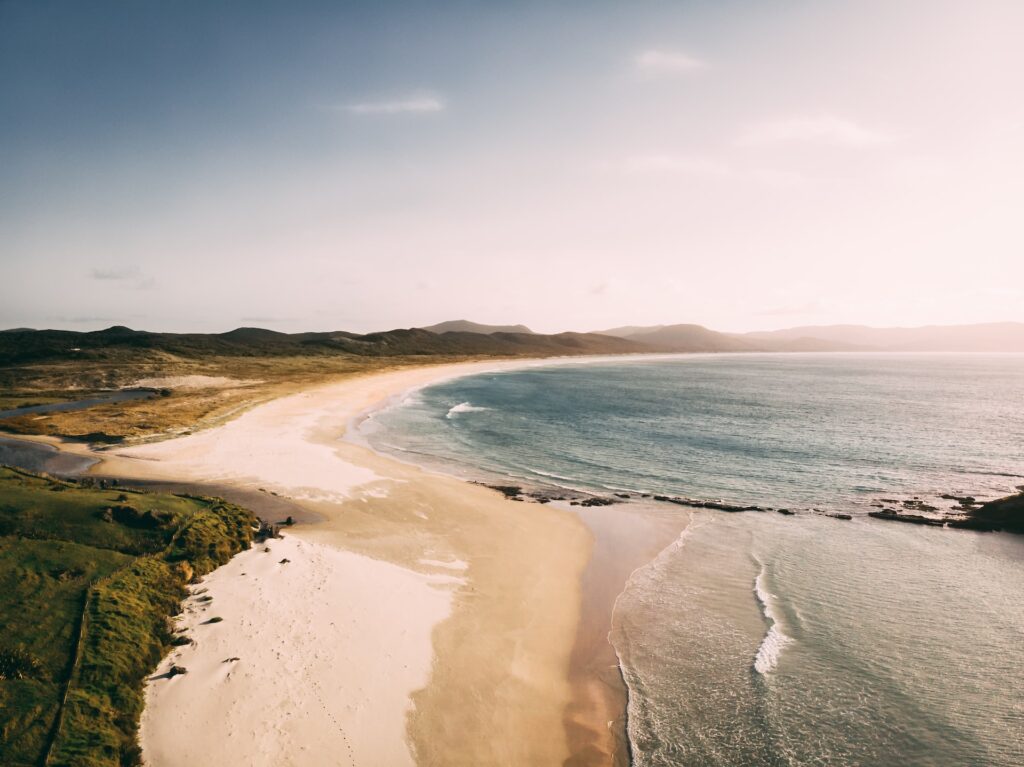
You Can’t Predict The Weather
The weather in New Zealand is unpredictable, to say the least. Summer occurs during our winter, and vice versa, and temperatures are generally mild, though the North is warmer and as you travel south things get cooler and in the winter can dip below freezing. Average rainfall is high all year round and the sun is surprisingly intense and unrelenting even when temperatures suggest otherwise. In short, pack for all eventualities, as you would approach a holiday in Britain.
Safety First
You’ve probably already heard; New Zealand is one of the safest places on earth, boasting a Global Peace Index value of under 1.2, which places them behind only Iceland in the world’s most peaceful destinations.
That said, it would be foolish to be totally complacent with your belongings and personal safety when travelling. Theft is unfortunately not uncommon, particularly from parked, unattended vehicles in remote settings; take normal precautions and hide belongings from view or take them with you. The same goes for hotel rooms, particularly of the budget variety; use a safe if provided or take valuables along with you for the ride.
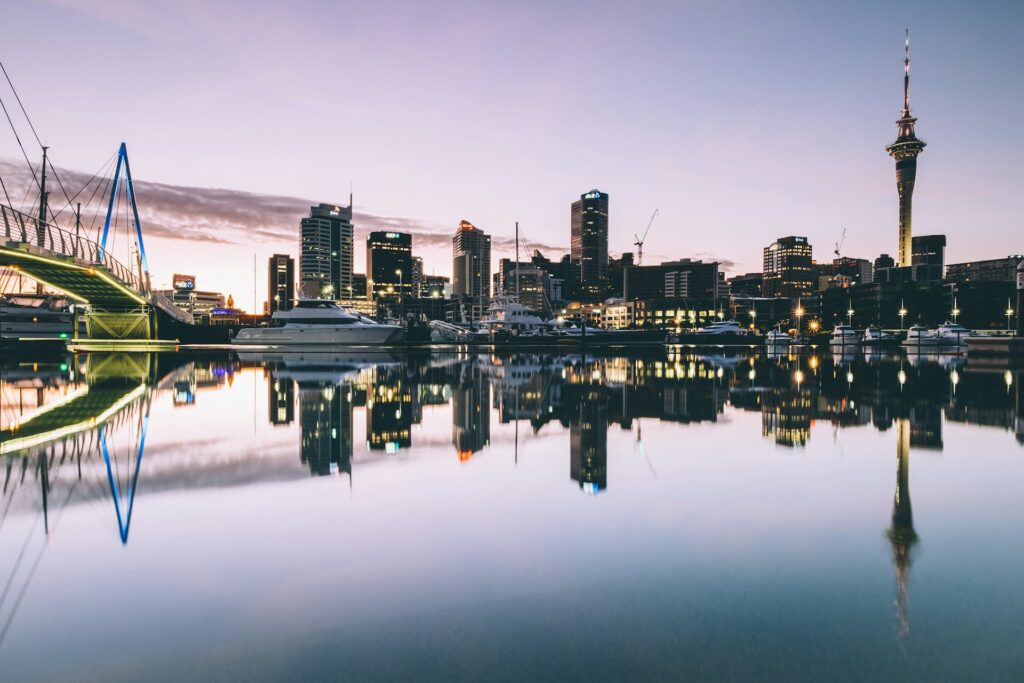
Pack Light, Ship Smart
Whilst the temptation to pack for every conceivable weather scenario is strong, remember that New Zealand has excellent shopping options for anything you might need. Many British expats and travellers alike have discovered the convenience of UK to New Zealand parcel forwarding services when they find themselves missing specific items from home or need to receive care packages from family.
These services are particularly handy if you’re planning an extended stay or working holiday, allowing you to ship everything from favourite teatime treats to essential outdoor gear that you’d rather not lug through airports.
Time Your Visit Wisely
The peak tourist season runs from December to February (remember, that’s summer down under), when prices soar and accommodation can be scarce in popular destinations. Consider visiting during the shoulder seasons – March to May or September to November – when you’ll find more reasonable rates and fewer crowds but still enjoy relatively mild weather.
The autumn months (March to May) are particularly spectacular in regions like Central Otago, where the landscape transforms into a canvas of reds and golds. Plus, if you’re a wine enthusiast, this coincides perfectly with the grape harvest in renowned wine regions like Marlborough and Hawke’s Bay.
And with that, we hope you enjoy your trip to New Zealand just as much as we’re looking forward to hearing about it!





